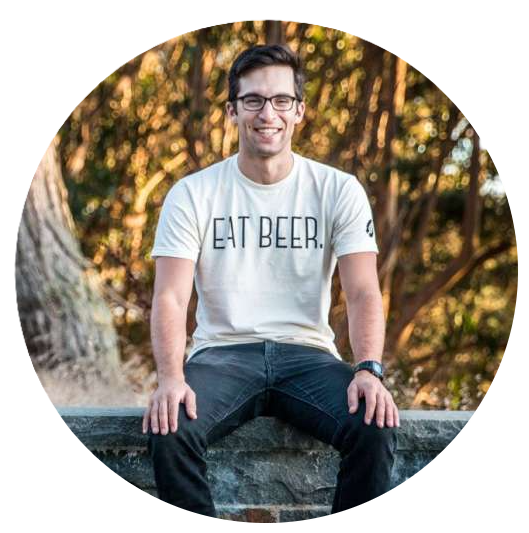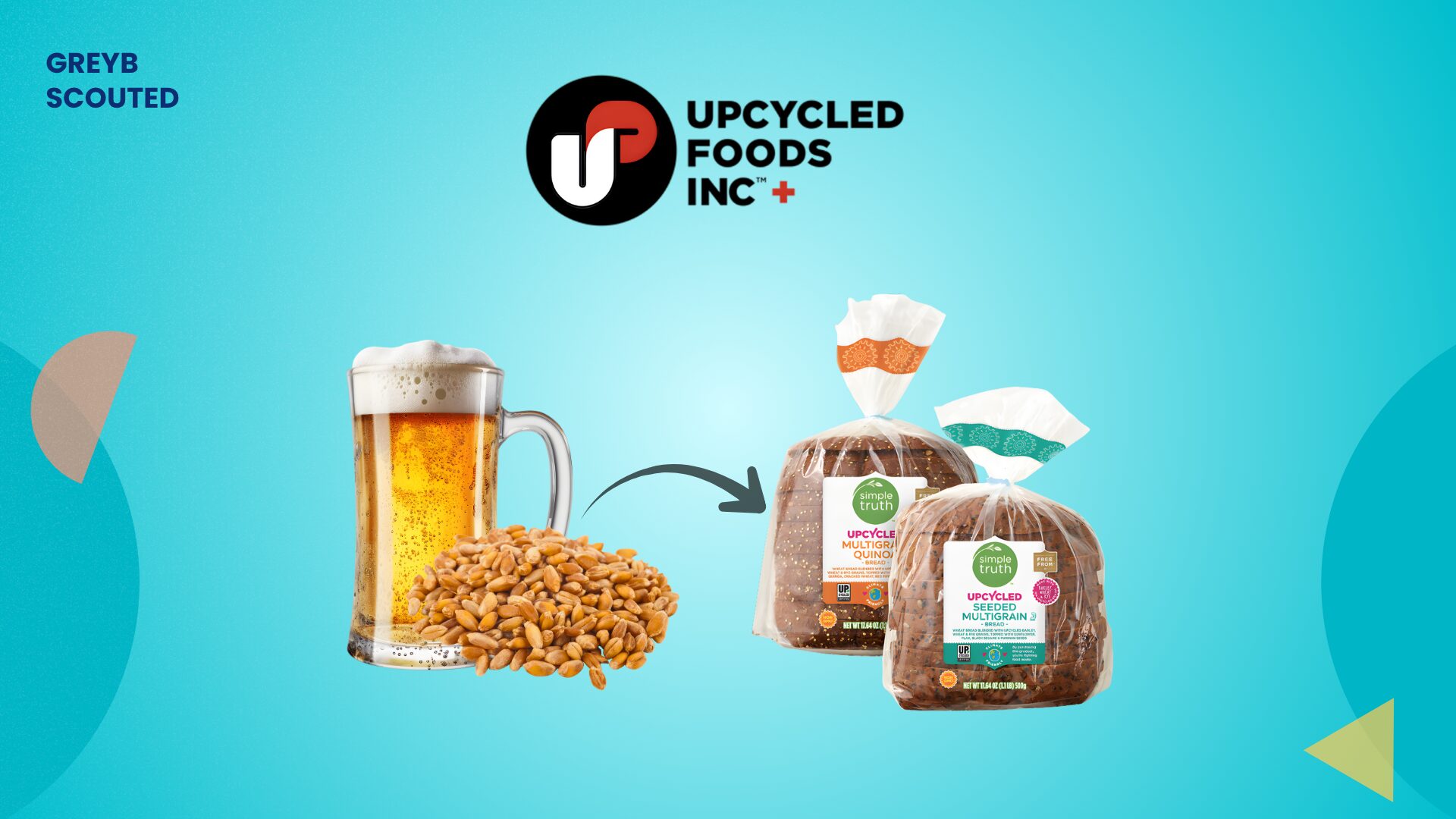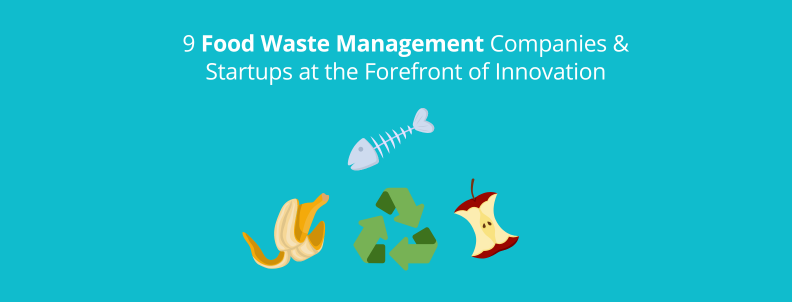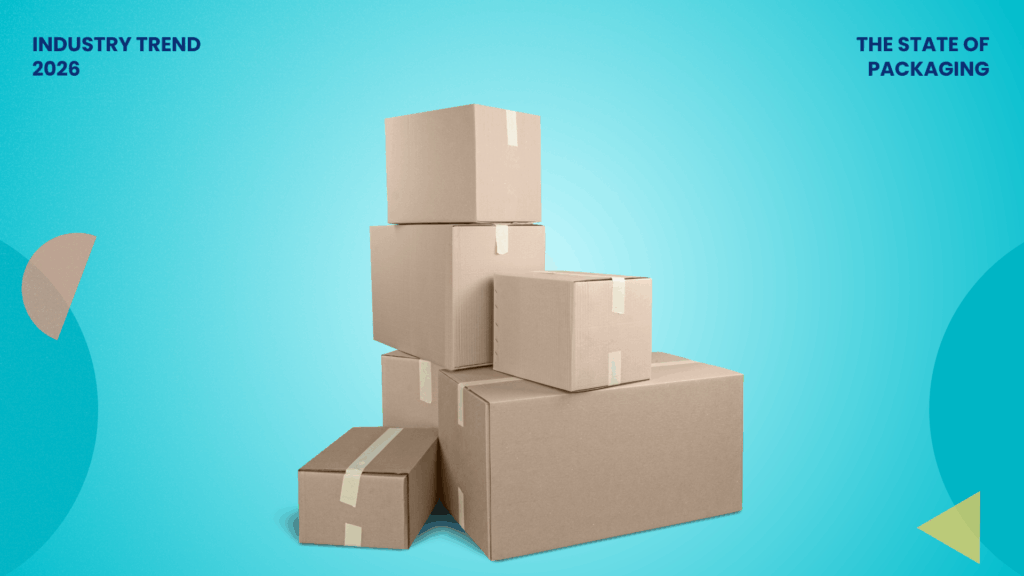According to market estimates, up to one-third of the food produced worldwide is wasted, often during production or at the consumer level. This waste represents a lost resource and a missed opportunity to create sustainable, nutritious ingredients to improve food security. The conventional food system relies heavily on linear processes that result in significant waste, contributing to resource depletion and environmental pollution.
A startup named Upcycled Foods is tackling the food waste problem by transforming overlooked and undervalued food byproducts into valuable ingredients. By focusing on grains left over from the beer-brewing process, the company has developed nutrient-rich powders for various food products.
To better understand how their process works, we spoke to Daniel Kurzrock, CEO of Upcycled Foods. This article contains notable highlights from our entire conversation.
This interview is part of our exclusive Scouted By GreyB series. Here, we speak with the founders of innovative startups to understand how their solutions address critical industry challenges and help ensure compliance with industry and government regulations. (Know more about startups scouted by GreyB!)
“We take ingredients that were once considered waste and transform them into high-value products.”

Dan Kurzrock is the CEO and founder of Upcycled Foods, Inc. Dan holds an MBA in Sustainable Business from Presidio Graduate School and has been a leading voice in the upcycled food movement, also co-founding the Upcycled Food Association and Foundation. He co-founded ReGrained in 2012, developing patented tech to turn spent grain into food-grade ingredients. That venture evolved into Upcycled Foods, Inc., which now supplies upcycled grain ingredients to food manufacturers.
Waste Grain Transformed into Functional Ingredients for Snacks and Drinks
Upcycled Foods specializes in transforming food waste into valuable ingredients. The company’s innovative approach focuses on using overlooked byproducts from food production, such as spent grains from the beer-brewing process, to create new, high-protein, fiber-rich powders. These ingredients are then incorporated into consumer products, providing both nutritional value and environmental benefits. Upcycled Foods is addressing both global waste challenges and the demand for cleaner, more sustainable food ingredients.
What is upcycled food, and how does it impact the food system?
Dan: Upcycled food refers to food that would otherwise go to waste during production and is repurposed into valuable ingredients. At Upcycled Foods, we source overlooked food byproducts, like spent grains from breweries, and turn them into high-protein, high-fiber ingredients. We aim to bridge the gap between food waste and food security by creating products that not only help reduce environmental impacts but also offer nutritional benefits to consumers.
How do you select what should and shouldn’t be upcycled?
Dan: It’s a nuanced process. Not every food byproduct is suitable for upcycling. It’s essential to assess both the nutritional value and the market demand for these ingredients. We look for food side streams with the potential to be transformed into products that benefit the end consumer. For example, spent grains from brewing are rich in fiber and protein, making them ideal for use in breads and snacks. We focus on sourcing materials that are commercially viable and can be integrated into products that solve real customer problems.
Can you describe your upcycling technology and how it works?
Dan: Our technology focuses on transforming food byproducts into products that maximize their nutritional potential. For example, the spent grains we source from breweries undergo a sugar-removal process, creating a powder with dietary benefits. This powder can then be used to fortify bread, snacks, and other food products. What sets us apart is our ability not only to develop these ingredients but also to help other companies adopt our model through playbooks and research, ultimately allowing the industry at large to integrate upcycled ingredients into their products.
What challenges do you face when working with upcycled food ingredients?
Dan: One of the biggest challenges is ensuring consistency, especially when working with ingredients from different suppliers. Since food waste can vary in quality and composition, we’ve had to develop processes that guarantee the consistency of the end product. Another challenge is market education; many companies are hesitant to adopt upcycled ingredients because they are unfamiliar with the benefits. We spend a lot of time working with our partners to demonstrate how these ingredients can help meet consumer demands for sustainability and nutrition without compromising on quality.
How do you plan to scale your operations in the future?
Dan: Scaling is both an exciting and complex challenge. We are already working with large multinational food companies and selling our products at a commercial scale. However, there’s still a huge opportunity for growth, especially given the sheer amount of food waste. We want to explore more food byproducts and continue to develop new ingredients. The potential is enormous. Billions of pounds of food waste can be turned into valuable products. Our goal is to expand this model to other industries, further closing the loop on food production while creating a more sustainable food system.
What’s next for Upcycled Foods?
Dan: The future looks promising. We plan to scale our ingredient development further and expand into new markets. As demand for sustainable food ingredients grows, we see tremendous opportunity to integrate upcycled ingredients into snacks and beverages. We’re also excited about exploring other types of food byproducts and continuing to innovate with new upcycling technologies that can be scaled globally. There is a real need for this kind of change in the food system, and we’re eager to be a part of it.
Meet our Interviewer – Shabaz Khan, Marketing Manager at GreyB
Shabaz Khan, Marketing Manager
Want to find other scalable startups working on food waste reduction and the circular economy? Please fill out the form below to contact our experts.
Get in touch
Please share your query below





